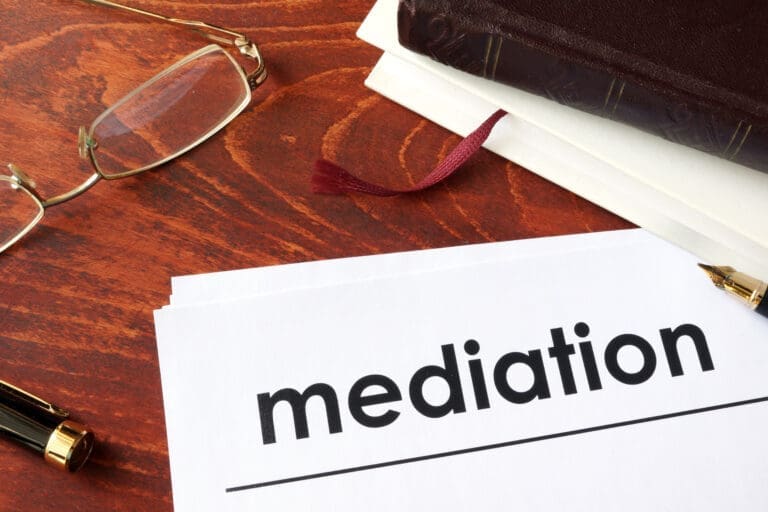
Starting a small claims case can be an intimidating process for many individuals, but with the right asesoramiento jurídico and preparation, it can be a straightforward and effective way to resolve disputes involving relatively small amounts of money. The steps to initiate a small claims case typically involve gathering evidence, filing the necessary paperwork, and presenting your case in court. However, seeking legal advice throughout this process can significantly improve your chances of a favorable outcome.
The first step in starting a small claims case is to determine whether your dispute is suitable for small claims court. Small claims courts are designed to handle cases involving relatively modest sums of money, with the maximum amount varying by state. These courts typically deal with issues such as unpaid debts, property damage, or breach of contract. It’s essential to consult with a legal professional to ensure that your case falls within the jurisdiction of small claims court and that you’re pursuing the most appropriate legal avenue for your situation.
Once you’ve determined that small claims court is the right forum for your dispute, the next step is to gather all relevant evidence to support your claim. This may include contracts, receipts, photographs, witness statements, and any other documentation that substantiates your case. A legal advisor can help you identify which pieces of evidence are most crucial and how to present them effectively in court. They can also guide you on how to organize your evidence in a clear and compelling manner, which can be instrumental in convincing the judge of the merits of your claim.
Filing the necessary paperwork is a critical step in initiating a small claims case. This typically involves completing a complaint form, which outlines the nature of your dispute and the amount of money you’re seeking. While the forms are designed to be user-friendly, having legal advice can ensure that you’re providing all the required information and framing your claim in the most persuasive way possible. An attorney can review your complaint to make sure it’s complete, accurate, and effectively communicates the basis of your claim.
After filing your complaint, you’ll need to serve the defendant with a copy of the lawsuit. This process, known as service of process, is a crucial legal requirement that ensures the defendant is aware of the case against them and has an opportunity to respond. The rules for serving a defendant can be complex, and failure to follow them correctly can result in your case being dismissed. Legal advice can be invaluable in navigating this step, ensuring that you comply with all relevant laws and procedures for serving the defendant in your jurisdiction.
Preparing for your court date is another area where legal advice can make a significant difference. While small claims courts are designed to be more informal than traditional courts, presenting your case effectively still requires careful preparation. A legal advisor can help you organize your arguments, anticipate potential counterarguments from the defendant, and practice presenting your case clearly and concisely. They can also provide guidance on courtroom etiquette and procedures, helping you feel more confident and prepared when you appear before the judge.
One aspect of small claims cases that often benefits from legal advice is understanding and adhering to the prescripción. This legal concept refers to the time limit within which you must file your case after the dispute arises. The statute of limitations varies depending on the nature of the claim and the jurisdiction, and failing to file within this timeframe can result in your case being dismissed regardless of its merits. A legal professional can help you determine the applicable statute of limitations for your case and ensure that you file your claim in a timely manner.
Another important consideration in small claims cases is the possibility of mediación or alternative dispute resolution. Many small claims courts offer or require mediation services before a case goes to trial. This process involves meeting with a neutral third party who helps facilitate a discussion between you and the defendant to try to reach a mutually agreeable solution. Legal advice can be crucial in preparing for mediation, helping you understand your rights, identify potential areas of compromise, and negotiate effectively to achieve a favorable outcome.
When it comes to presenting evidence in small claims court, having legal guidance can significantly strengthen your case. While the rules of evidence in small claims court are generally more relaxed than in higher courts, there are still important principles to follow. A legal advisor can help you understand what types of evidence are admissible, how to properly introduce documents and other exhibits, and how to effectively question witnesses if they’re part of your case. They can also advise you on how to respond if the defendant presents evidence or witnesses that you weren’t expecting.
One often overlooked aspect of small claims cases is the enforcement of judgments. If you win your case, the court will issue a judgment in your favor, but it’s up to you to collect the money from the defendant. This process can sometimes be challenging, especially if the defendant is unwilling or unable to pay. Legal advice can be invaluable in understanding your options for enforcing a judgment, which may include wage garnishment, liens on property, or other legal mechanisms to collect the money you’re owed.
Understanding the appeals process is another area where legal advice can be crucial in small claims cases. While the right to appeal a small claims decision varies by jurisdiction, it’s important to know your options if you’re unsatisfied with the outcome of your case. A legal professional can explain the grounds for appeal, the deadlines for filing an appeal, and the likelihood of success based on the specifics of your case. They can also help you weigh the potential costs and benefits of pursuing an appeal.
One aspect of small claims cases that often benefits from legal advice is dealing with counterclaims. In some cases, the defendant may file a counterclaim against you, essentially turning the tables and seeking damages of their own. This can complicate your case and potentially increase your financial exposure. Legal guidance can help you understand how to respond to a counterclaim, assess its merits, and develop strategies to defend against it while still pursuing your original claim.
Another important consideration in small claims cases is the potential for default judgments. If the defendant fails to respond to your lawsuit or appear in court, you may be able to obtain a default judgment in your favor. However, the process for obtaining and enforcing a default judgment can be complex, and there are circumstances under which a defendant can have a default judgment set aside. Legal advice can help you understand when and how to pursue a default judgment, as well as how to protect your interests if you’re on the receiving end of one.
Understanding the role of expert witnesses in small claims cases is another area where legal advice can be valuable. While expert witnesses are less common in small claims court than in higher courts, there are situations where expert testimony can significantly strengthen your case. For example, in a dispute over faulty repairs, testimony from a qualified mechanic or contractor could be crucial. A legal advisor can help you determine whether expert testimony would be beneficial in your case, how to find and prepare an expert witness, and how to present expert evidence effectively in court.
One often overlooked aspect of small claims cases is the potential impact on your credit report. If you’re sued in small claims court and lose, the judgment against you could appear on your credit report, potentially affecting your ability to obtain credit in the future. Conversely, if you win a judgment against someone else, you may be able to report that unpaid judgment to credit bureaus. Legal advice can help you understand the potential credit implications of your small claims case and take appropriate steps to protect your financial interests.
Another important consideration in small claims cases is the concept of personal jurisdiction. This legal principle determines whether a court has the authority to hear a case involving a particular defendant. Issues of personal jurisdiction can arise if the defendant lives in a different state or if the dispute occurred in a different jurisdiction from where you’re filing the case. A legal advisor can help you determine the appropriate venue for your case and ensure that you’re filing in a court that has proper jurisdiction over the defendant.
Understanding the rules around descubrimiento in small claims cases is another area where legal advice can be beneficial. While formal discovery procedures are often limited in small claims court, there may still be opportunities to obtain information from the other party before the trial. A legal professional can guide you on what information you’re entitled to request, how to make those requests effectively, and how to respond if the other party is uncooperative.
One aspect of small claims cases that often benefits from legal advice is dealing with business entities as defendants. If you’re suing a corporation, LLC, or other business entity, there may be specific procedures you need to follow to properly name and serve the defendant. Additionally, understanding the liability structure of different business entities can be crucial in determining who is responsible for paying a judgment. Legal guidance can help you navigate these complexities and ensure that you’re pursuing your claim against the correct party.
Another important consideration in small claims cases is the potential for quiebra to affect your claim. If the defendant files for bankruptcy, it can significantly impact your ability to collect on a judgment or even proceed with your case. Legal advice can help you understand how bankruptcy might affect your claim, what steps you can take to protect your interests, and whether it’s worth pursuing your case if the defendant is in financial distress.
Comprender el concepto de res judicata is another area where legal advice can be valuable in small claims cases. This legal principle prevents parties from relitigating issues that have already been decided in a previous case. If your dispute has any connection to previous legal proceedings, it’s important to understand how res judicata might apply and whether it could affect your ability to bring your current claim. A legal advisor can help you navigate these complex legal concepts and ensure that your case isn’t barred by previous judgments.
One often overlooked aspect of small claims cases is the potential for cobertura del seguro to play a role. In some disputes, particularly those involving property damage or personal injury, the defendant may have insurance that could cover your claim. Understanding how to deal with insurance companies and whether to name them as parties to your lawsuit can be crucial. Legal advice can help you navigate these issues and potentially increase your chances of recovering damages.
Another important consideration in small claims cases is understanding the rules around hearsay evidence. While the rules of evidence are generally more relaxed in small claims court, hearsay can still be a tricky issue. Legal guidance can help you understand what constitutes hearsay, when exceptions to the hearsay rule might apply, and how to present your evidence in a way that maximizes its admissibility and persuasiveness.
Comprender el concepto de negligencia comparativa is another area where legal advice can be crucial in small claims cases, particularly those involving accidents or property damage. This legal principle can affect the amount of damages you’re able to recover if you’re found to be partially at fault for the incident that led to your claim. A legal advisor can help you understand how comparative negligence might apply to your case and develop strategies to minimize its impact on your recovery.
One aspect of small claims cases that often benefits from legal advice is dealing with multiple defendants. If your claim involves more than one party, there may be complex issues around joint and several liability, apportionment of damages, and strategic considerations in pursuing your claim. Legal guidance can help you navigate these complexities and develop an effective strategy for pursuing your case against multiple parties.
Another important consideration in small claims cases is understanding the rules around subpoenas and compelling witness testimony. While the process is generally simpler in small claims court, there may still be situations where you need to compel a witness to appear or produce documents. Legal advice can be invaluable in understanding when and how to use subpoenas effectively, as well as how to respond if you’re served with a subpoena in connection with someone else’s case.
Comprender el concepto de mitigation of damages is another area where legal advice can be crucial in small claims cases. This legal principle requires the plaintiff to take reasonable steps to minimize their losses after an incident occurs. Failure to mitigate damages can reduce the amount you’re able to recover, even if the defendant is found liable. A legal advisor can help you understand your obligations to mitigate damages and document your efforts to do so, strengthening your case for full recovery.
In conclusion, while small claims court is designed to be accessible to individuals without legal representation, seeking legal advice throughout the process can significantly improve your chances of success. From determining whether your case is suitable for small claims court to enforcing a judgment in your favor, legal guidance can help you navigate the complexities of the legal system, present your case effectively, and protect your rights. By understanding the various legal aspects involved in small claims cases and seeking professional advice when needed, you can approach your case with confidence and increase your likelihood of achieving a favorable outcome.
Citations:
https://www.findlaw.com/criminal/criminal-charges/insurance-fraud.html
https://www.attorneygeneral.gov/protect-yourself/insurance-fraud/types-of-insurance-fraud/
https://insurancefraud.org/publications/insurance-fraud-hall-of-shame-2022/
https://www.huntonak.com/insights/legal/year-in-review-top-insurance-cases-of-2023
https://www.actuary.org/sites/default/files/2024-09/casualty-brief-insurance-fraud.pdf
https://doi.nebraska.gov/sites/default/files/doc/examples.pdf
https://www.claimspi.com/10-types-of-insurance-fraud/








